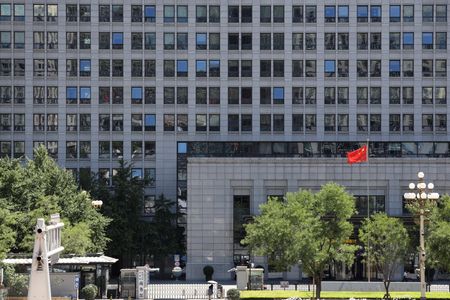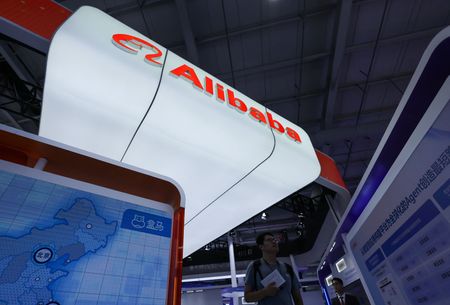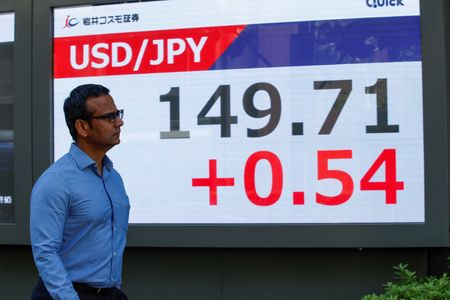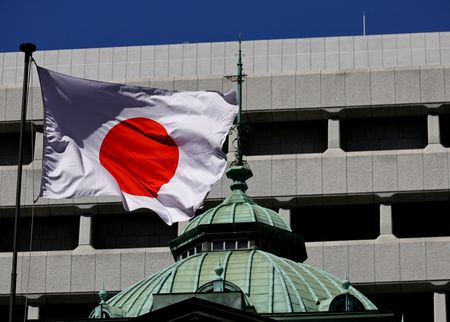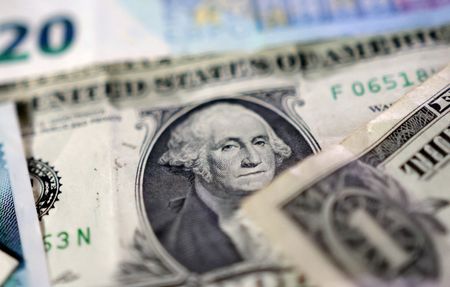By Kiyoshi Takenaka
TOKYO (Reuters) -Driving economic growth and mitigating the adverse effects of rising prices are high on corporate Japan’s wish list for the country’s new government that will be formed this month, a Reuters survey showed on Thursday.
The ruling Liberal Democratic Party (LDP) last week selected fiscal dove Sanae Takaichi as its new leader, putting her on course to become the nation’s first female prime minister.
When asked about their hope for the incoming administration, about 56% of respondents said a solid growth strategy while 54% want the new government to prioritise responses to price increases and 21% would like it to bolster the nation’s security and foreign policies, the poll showed.
The question allowed up to two answers.
During her campaign for the LDP’s top job, Takaichi pledged aggressive investment in areas such as artificial intelligence, semiconductors and next-generation batteries.
She also said she would aim to cut fuel taxes to help the public cope with persistent price rises.
The survey was conducted by Nikkei Research for Reuters from September 24 to October 3, one day before Takaichi’s victory in the LDP leadership election. Nikkei Research reached out to 497 companies and 237 responded on condition of anonymity.
Takaichi will be tasked with financing strategic investment to promote growth and lowering taxes to soften the blow from rising prices, while reining in government debt. Japan’s public debt burden is the industrial world’s heaviest at more than twice the size of gross domestic product.
Asked if the new administration should revise the current government policy of achieving a primary budget surplus by March 2027, 37% of respondents said there is no need to stick to a particular timing, while 33% said a stronger commitment to attaining the target is necessary.
“There’s a concern the economy may suffer a serious impact like the ‘Truss shock’ in Britain if a growing deficit leads to a cut in Japan’s credit ratings,” an official at a chemical firm wrote in the survey. The company supports the view that firmer commitment to reaching a primary budget surplus is needed.
In 2022, former British Prime Minister Liz Truss’ so-called mini-budget containing unfunded tax cuts spooked financial markets, pushing up UK borrowing costs sharply and bringing an end to her short-lived tenure.
AI USAGE
Asked what type of benefit artificial intelligence is bringing to corporate Japan, 78% of respondents picked productivity enhancement, 51% chose the generation of new ideas and improvement in creativity, and 41% selected the alleviation of labour shortage.
The question allowed multiple answers.
The poll showed 27% of respondents have not introduced AI into their workplace, and survey comments indicated that not all companies that have already started using AI are making full use of the technology.
“We have a system in place to let employees use AI, but their usage is nothing more than personal research. It’s not a strategic introduction,” a manager at a machinery maker said.
On the detention of hundreds of workers including three Japanese nationals in a U.S. immigration raid last month, 7% of respondents, or 15 firms, said they expect a certain impact on their U.S. operations while 63% said they see little or no effect. The remaining 30% have no U.S. operations.
Those 15 companies foresee potential impact including difficulty in securing Japanese employees willing to work in the United States and delays and slowdown in their U.S. businesses.
The raid took place at the site of the $4.3 billion Hyundai Motor and LG Energy Solution project to build batteries for electric cars.
(Reporting by Kiyoshi Takenaka; Editing by Christopher Cushing)



